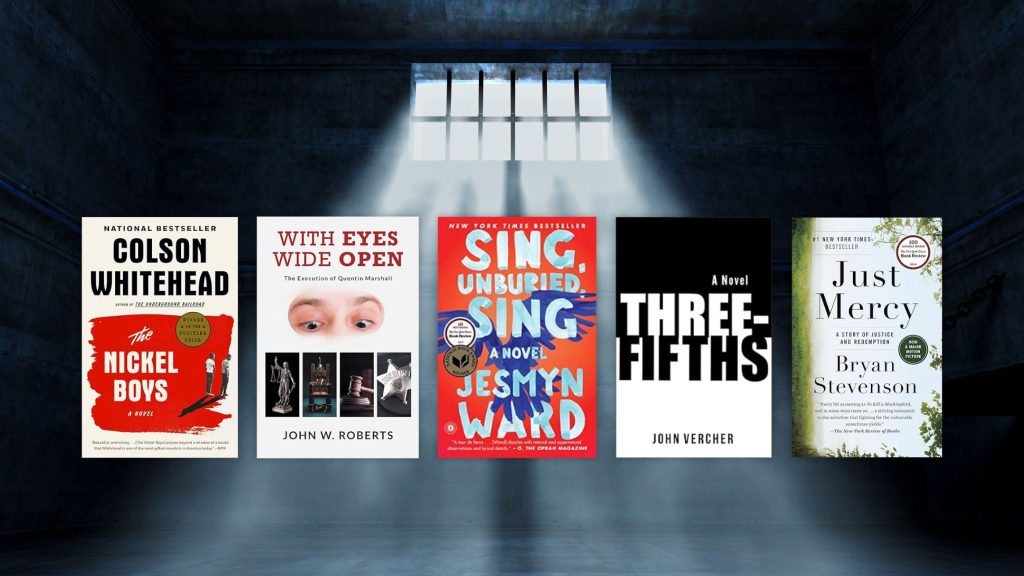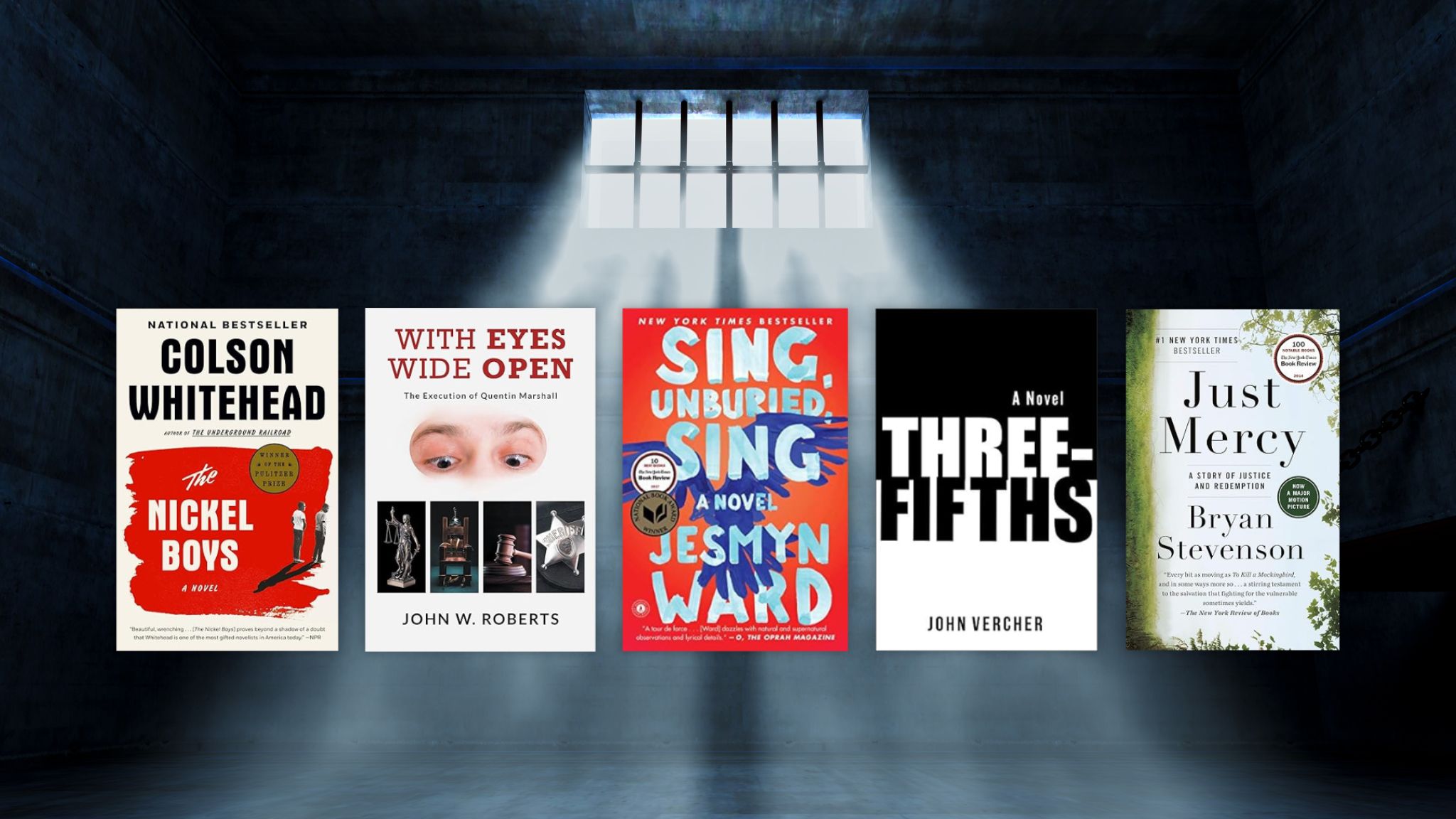
As tensions continue to rise across American political lines, one particularly incendiary topic is the discussion of the US legal system. Many advocates have brought to light the way the prison-industrial complex plays a major role in the racism and subjugation of Black Americans. And while the US legal system’s crimes are slowly being brought to public awareness — the 2019 Netflix drama When They See Us, educating many about the Central Park Five, for example — stories of false imprisonment and mistreatment are not merely a thing of the past.
As racism within the legal system continues to the present, criticism of punitive law rises. The discussion isn’t only being held in nonfiction books documenting the real stories, but in literary fiction as well. We’ve gathered a handful of novels and nonfiction stories that explore themes of incarceration, the imprisonment of innocents and racism within the American legal system. From a Southern gothic touched by magical realism to a multifaceted legal thriller, these tales remind us of how strongly fiction can mirror reality — and how harsh that reality is.
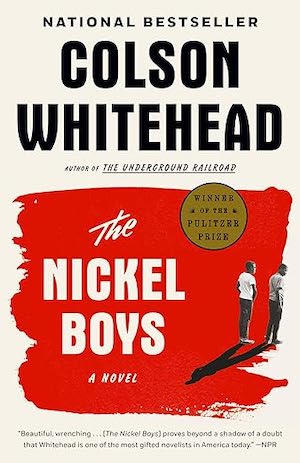
The Nickel Boys by Colson Whitehead
Winner of the Pulitzer Prize and a national bestseller, this tour de force of a novel is set at an institution that’s a prison in all but name. Inspired by the Dozier School, a corrupt and abusive reform school in Florida that ran for 111 years, The Nickel Boys tells the story of Elwood Curtis and Jack Turner, two boys at a juvenile reformatory in Jim Crow-era Florida. The idealistic Elwood is horrified by the cruelty at the Academy, while the weary, hardened Turner struggles to protect his friend and himself from the violence around them. A snap decision and a chance for escape result in a startling twist — and as the novel flips back and forth between past and present, it becomes clear the impact of that decision has reverberated for decades. Colson Whitehead crafts a heart-jerking novel that makes clear the way racism and incarceration are inextricably linked in America, even in places nominally dedicated to reform.
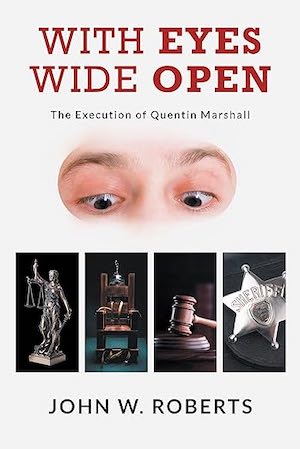
With Eyes Wide Open: The Execution of Quentin Marshall by John W. Roberts
While the events of With Eyes Wide Open are fictional, they ring far too true to be ignored. This chilling novel tells the story of Quentin Marshall, a Black man falsely accused of raping and killing a white woman in his South Carolina town in the late 1950s. As Quentin fights the guilty verdict and his sentence to execution, the novel fans out to dive into the perspectives of those witnessing the miscarriage of justice — Quentin’s accusers who condemned him, his defenders who preach his innocence and those who watch, passively. Described as a “cautionary tale about the corrosive effects of systemic racism” as “an innocent man fights for his life within a system indifferent to his existence,” With Eyes Wide Open reminds readers that innocence does not guarantee safety when the justice system remains unjust and biased by prejudice.
Author John W. Roberts, informed by his experience as an educator and Deputy Chairman of the National Endowment for the Humanities during the Clinton administration, crafts an intricate, impactful story that will stay with readers long after the last page.
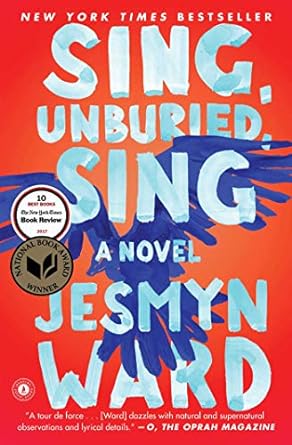
Sing, Unburied, Sing by Jesmyn Ward
Described by Slate as “like a modern Beloved, with the cruelty of the criminal justice system swapped in for the torments of slavery,” Sing, Unburied, Sing is an eerie, lyrical exploration of modern-day America and its twisted roots. Jojo is a 13-year-old boy whose family has been fractured by the law system. His Black grandfather is haunted by his time at Parchman Farm and his white father is set to be released from the very same penitentiary. Jojo accompanies his family on a road trip through rural Mississippi, where the family’s complex dynamics close in on them as much as the stifling Southern heat. Magical realism drifts in and out of the narrative in the presence of Richie, the ghost of a Black boy who served alongside Jojo’s grandfather at Parchman Farm, and whose soul never left. The novel tells a vivid tale of the way the American prison industrial complex tears families apart, and its secure foundation upon the legacy of racism.
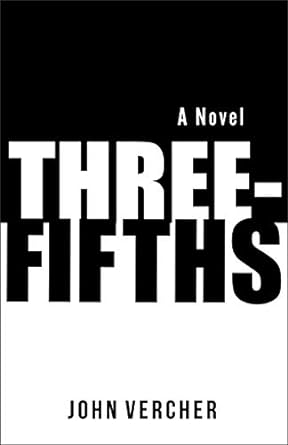
Three-Fifths by John Vercher
It’s 1995 in Pittsburgh, and Bobby Saraceno has been living a lie his entire life. Raised by the white side of his family, Bobby has hidden his biracial identity and all mention of his estranged Black father — even from his best friend, Aaron. But when Aaron returns from prison as a newly radicalized white supremacist, Bobby now fears for his safety if his childhood friend discovers the truth. The situation takes a turn for the worse when Bobby witnesses Aaron’s hate crime against a young Black man. Now Bobby must balance keeping his race a secret from Aaron and trying to avoid being implicated in the crime himself.
Three-Fifths is heavily inspired by the author’s own identity as a biracial man and his experience as a student during the 90s, amidst the L.A. Riots and the O.J. Simpson trial. This added context further emphasizes the novel’s narrative of a man whose safety hangs by a thread as racial tensions threaten to tear his life apart.
Read BookTrib’s full review and author interview with John Vercher here.
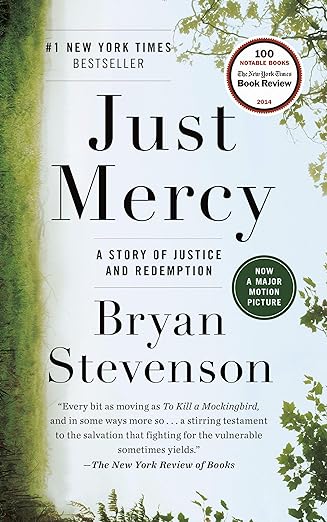
Just Mercy: A Story of Justice and Redemption by Bryan Stevenson
The most heart-wrenching aspect of Just Mercy is that its contents are 100% true. The only nonfiction book on this list, it serves as a reminder that these books’ themes of unjust imprisonment and institutional violence are far from fictitious. Spanning Bryan Stevenson’s career as a lawyer, the book chronicles his experience in founding the Equal Justice Initiative and fighting to free those who the justice system had failed — in particular, those who had been falsely accused and even sentenced to death. An award-winner, New York Times bestseller and now a major motion picture, Just Mercy reminds us that the fight for justice is a constant battle, even against the institutions that claim to stand for integrity and fairness. Mirroring the stories of false accusations in With Eyes Wide Open and The Nickel Boys, this book lays bare the real cases of injustice that permeate the American legal system.

